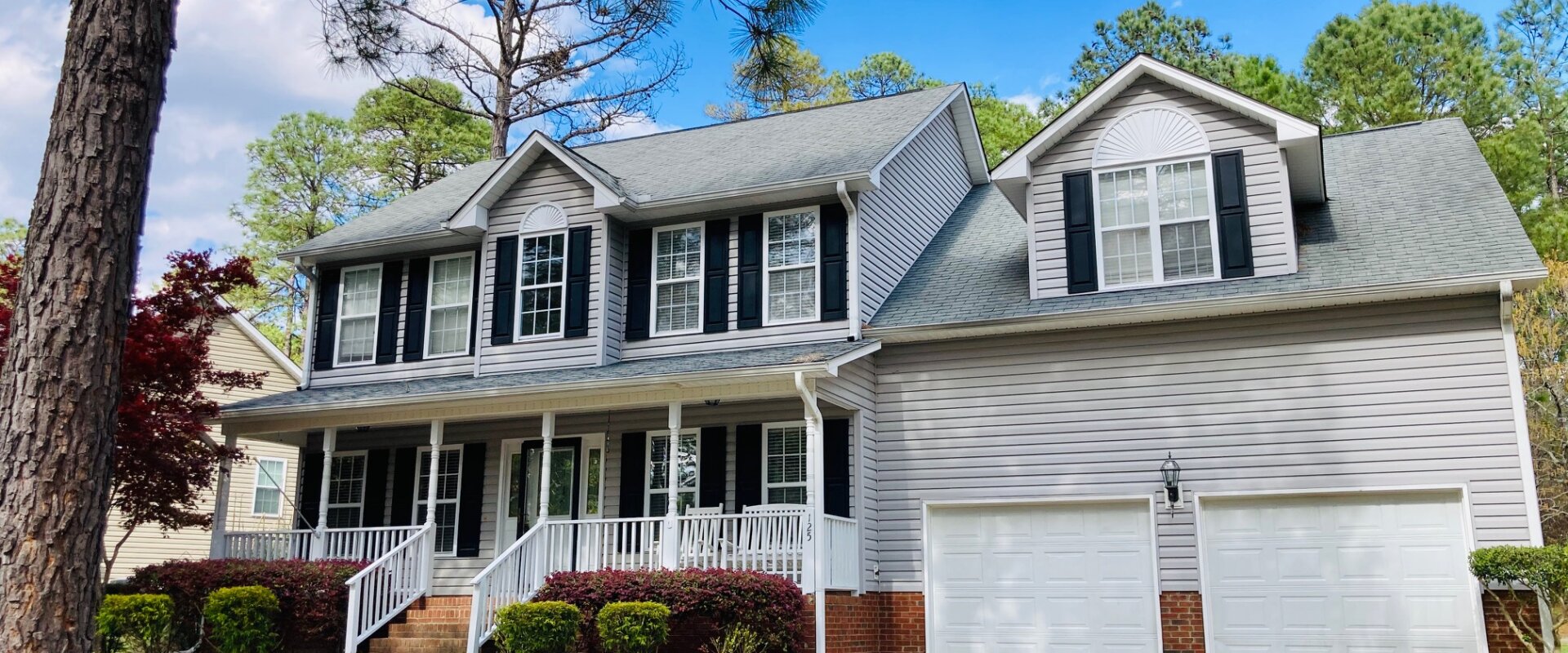Yes, you can sell a house in foreclosure in North Carolina, but prompt action, thorough communication with the bank, and a knowledge of the foreclosure process is key. In this article we’ll explain what you need to know about the foreclosure process in North Carolina and the ways you can prevent a foreclosure’s negative effects to your credit and finances.
Table of contents
We helped Brenda stop foreclosure within two days of her auction
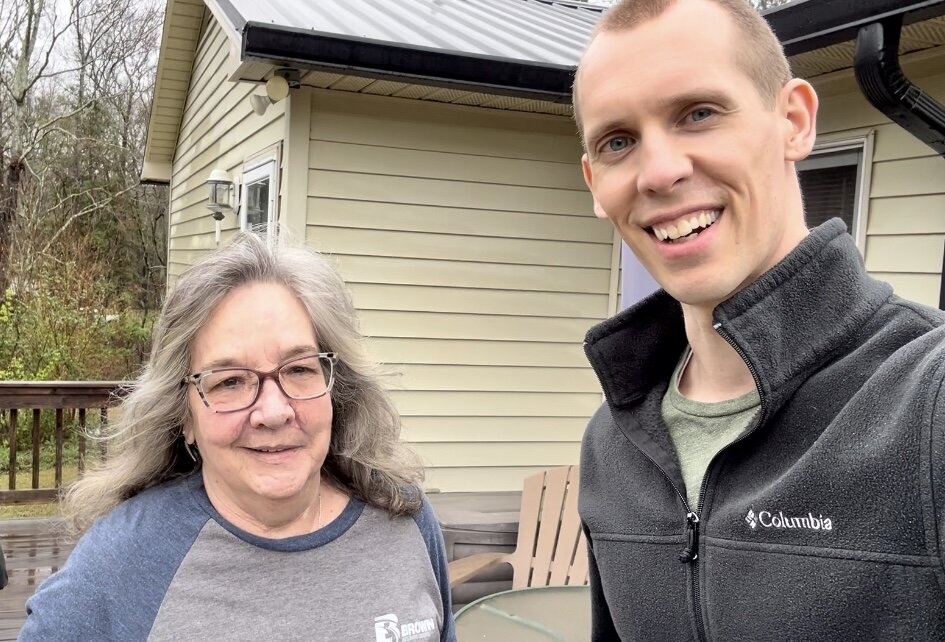
- Selling a house in foreclosure in North Carolina
- What is foreclosure?
- Consequences of foreclosure in North Carolina
- The timeline of the foreclosure process in North Carolina
- Can you sell a house in foreclosure in North Carolina?
- How to sell a house in foreclosure in North Carolina
- How long do you have to sell your house before losing your home to foreclosure in North Carolina?
- How long does it take to sell a house in foreclosure in North Carolina?
- When is it too late to stop foreclosure in North Carolina?
- Tips for acting quickly when selling a house during foreclosure
- Challenges when selling a home in foreclosure in North Carolina
- What options do you have other than selling your home to stop foreclosure?
- Common questions about selling a house in foreclosure in North Carolina
- Conclusion: Can you sell a house in foreclosure in North Carolina?
Selling a house in foreclosure in North Carolina
Facing foreclosure on your home can be an overwhelming and emotionally draining experience—especially when combined with life challenges such as job loss, divorce, overwhelming medical bills, or the death of a loved one. When mortgage payments fall behind, the lender has the legal right to start the foreclosure process and sell the house at auction to recover the unpaid debt. This not only puts you at risk of losing your home but can also severely damage your credit score, making it harder to buy another house, secure loans, or even rent in the future.
While the foreclosure process can seem daunting, it’s important to keep in mind that, depending on where you are in the process, you have a number of options. Lenders and financial institutions would prefer to avoid foreclosure because they frequently lose money on the sales of foreclosed properties. As a result, the best way to discover your options and avoid foreclosure is by maintaining clear communication with your mortgage lender. We’ll go into these options and provide important details on selling a foreclosed home below.
Case Study from the Author
Selling a House in Foreclosure
I have a deep understanding of buying and selling houses in foreclosure in North Carolina. Since 2017 I have closed 50-60 transactions dealing with a house in pre-foreclosure status. In my experience, there is typically more hope for a homeowner than what they may expect. Here is a case study with Brenda, whose house was within two days of being sold at auction when we helped her prevent foreclosure.
When I contacted Brenda, she had already begun packing up her belongings in anticipation of her house being sold at foreclosure auction. We were within two days of the auction date when I made her an offer that would pay off all of her debts. She had already made up her mind that the house was lost, but I helped her negotiate with the bank on a delayed auction date with proof of an executed purchase contract that would pay the loan off in full. The bank was, of course, willing since this would benefit them more than selling the house at a loss at auction.
Within a few weeks, we closed on the house clearing Brenda of all her debts. This resulted in Brenda selling her house without having to fix anything, paid off all of her debts, saved her credit, and paid the bank the remaining money owed on the mortgage. As Brenda states in the video testimonial, there is hope when dealing with a foreclosure situation. It’s important to find a home buyer who is experienced and willing to speak with the bank in order to find a win-win situation in order to stop a foreclosure from happening. We’ve helped many in this situation – hopefully this helps you too!
-Jason Hill, Freedom Choice Investments
What is foreclosure?
Foreclosure is a legal process through which the lender, typically a bank, re-possesses a house from the borrower who has failed to meet their mortgage obligations. Once a house is foreclosed, the lender then sells the house (usually at auction) to recoup the property’s losses.
In North Carolina, foreclosures may occur via either judicial or non-judicial means. However, most residential property foreclosures in North Carolina are conducted through the non-judicial process. A non-judicial foreclosure is a highly efficient and cost-effective method for lenders to foreclose on properties eliminating the need for extensive legal proceedings. Unlike a judicial foreclosure, most North Carolina foreclosures do not involve court proceedings and can be carried out in accordance with the state’s foreclosure statutes.
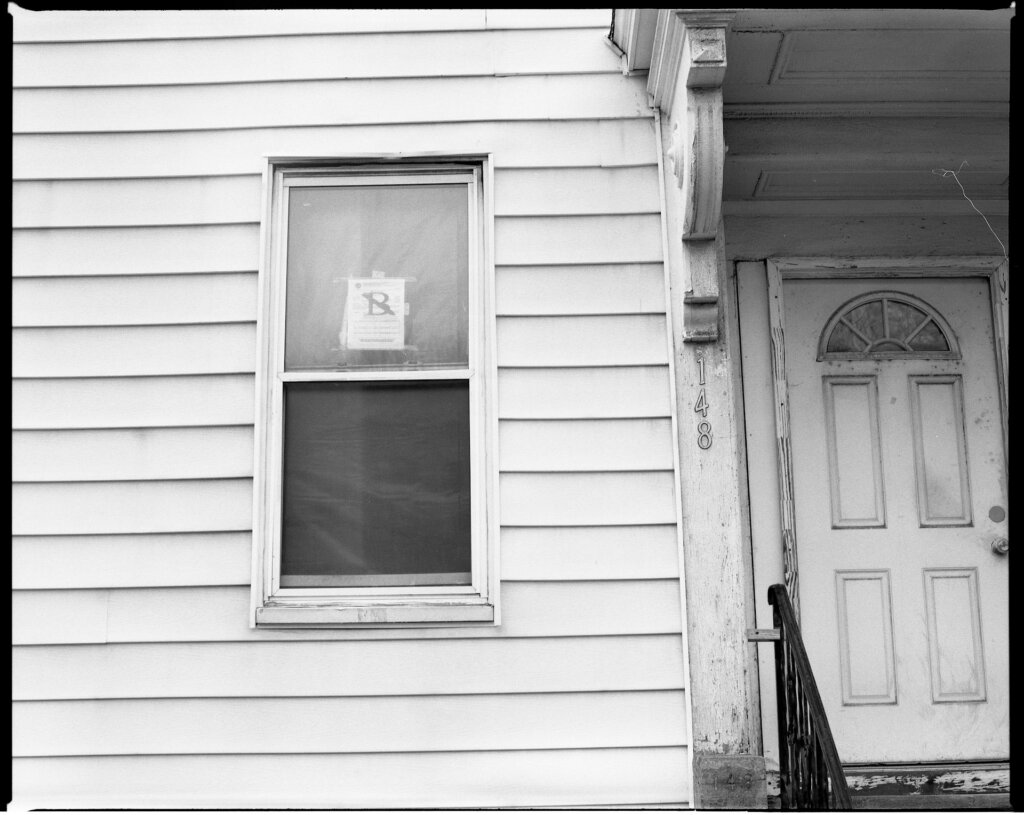
Consequences of foreclosure in North Carolina
Home eviction from foreclosure
The bank will repossess the property, causing the homeowner to lose both the home and any equity they had built up before the foreclosure process began.
Credit score damage from foreclosure
A foreclosure typically remains on your credit report for seven years causing obstacles when trying to qualify for a future loan
Deficiency balance
The amount owed to a creditor when collateral is sold for an amount that is less than what the borrower owes on a secured loan. So it is possible to actually still owe money after the bank has foreclosed on the home.
In the third quarter of 2024, North Carolina experienced a significant improvement in foreclosure activity, with a 44% decrease in foreclosure starts compared to the same period in 2023. This was the largest annual decline among states with 1,000 or more foreclosure starts during that quarter.
This shift indicates a notable positive trend in the state’s housing market, suggesting that fewer homeowners are entering the foreclosure process. For those still facing foreclosure, this environment may offer more favorable conditions for exploring options like selling the home to avoid foreclosure.
The timeline of the foreclosure process in North Carolina
In North Carolina, the foreclosure process generally spans approximately 120 days, commencing from the initial missed payment until the house is auctioned off. However, this timeline can fluctuate due to various factors, such as:
- The policies and protocols of the lender
- The foreclosure method employed
- The actions taken by the borrower throughout the proceedings
Here’s a general timeline of the foreclosure process in North Carolina:
Phase 1: First missed payment
Upon missing a payment, the lender typically dispatches a notice of default or a demand letter. This correspondence serves to alert you to the missed payment and the impending risk of foreclosure, while also providing a deadline by which you must rectify the situation and bring your account up to date.

Phase 2: Default
Following two missed payments, it’s probable that the lender will reach out to you via phone. Despite the delinquency, the lender might still be open to negotiating payment arrangements, possibly consolidating payments into a single sum rather than requiring several, to prevent further arrears. Subsequently, after three months of non-payment, the lender issues a demand letter, also known as a notice to accelerate, specifying the defaulted amount and granting the borrower a 30-day window to rectify the mortgage loan status.
Phase 3: Notice of default or foreclosure lawsuit
Following four consecutive months of missed payments, a notice of default (NOD) is dispatched. This formal announcement provides the borrower with a thirty-day window to settle the overdue payments before the foreclosure process initiates officially. Typically, lenders refrain from issuing a notification of default until the borrower has reached 90 days of delinquency (equivalent to three missed payments). Consequently, many borrowers may fall behind by a month or two without immediately facing foreclosure.
In a (less common) judicial foreclosure process, the lender initiates a foreclosure lawsuit. It’s imperative for the homeowner to promptly address this action, unless they’re willing to risk the judge granting a default judgment in favor of the lender. Following the homeowner’s response, the case proceeds to trial, during which the homeowner has the opportunity to seek legal counsel.
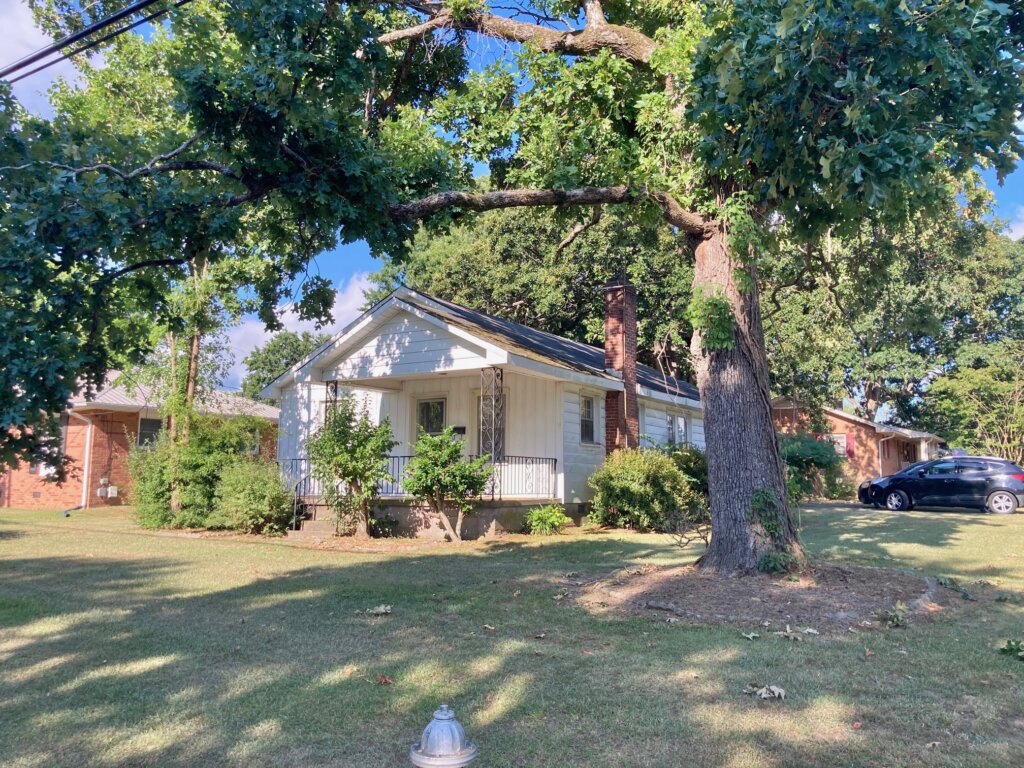
Phase 4: Notice of Sale
Phase 1-3 is commonly referred to as the pre-foreclosure process. Under federal law, the servicer generally cannot commence foreclosure proceedings until the borrower is more than 120 days overdue on payments, with some exceptions. It is during this stage that the house transitions from pre-foreclosure to foreclosure status. When the homeowner defaults on payments during the pre-foreclosure phase, the lender initiates the process by publishing a Notice of Sale, which the county records (also known as a notice of trustee’s sale). This notice specifies the auction’s date, time, and location, along with the minimum opening bid for the house. Typically, the period between the Notice of Sale and the foreclosure auction ranges from two to three months, though it often occurs sooner. Up until the auction date, the borrower still has the option to arrange payments or settle the outstanding amount, including any attorney fees incurred by the lender. However, this marks the final opportunity for the borrower to sell their house in order to stop the foreclosure process.
Phase 5: Auction
The lender is required, by law (N.C. Gen. Stat. § 45-21.17), to send you a notice of sale at least 20 days before the auction, and also post the notice in a public location and publish it in a newspaper for two consecutive weeks. The auction itself is open to the public, where the house is awarded to the highest bidder who meets all the necessary criteria. The lender or its representative establishes an initial bid, considering factors such as the outstanding loan amount, liens, unpaid taxes, and selling expenses. Once the highest bidder is determined and the transaction is finalized, the winning bidder receives a trustee’s deed upon sale, immediately assuming ownership and possession of the house.
Phase 6: Redemption Period
Certain states, including North Carolina, have legislation allowing foreclosed homeowners a period post-sale to reclaim the house. In North Carolina, this is referred to as the redemption period (or upset bid period). Following the foreclosure sale another individual can purchase the house by placing a higher bid than the one made during the initial sale, known as an “upset bid.” Initially, this period spans ten days following the filing of the sale report (N.C. Gen. Stat. § 45-21.20, § 45-21.27). With each new upset bid, a fresh 10-day upset bid period commences.
Phase 7: Eviction from home
If you, as the foreclosed homeowner, remain in the house following the foreclosure sale, the purchaser from the sale is required to issue you a notice to vacate before seeking an order for possession from the court clerk (N.C. Gen. Stat. § 45-21.29).
Phase 8: Deficiency judgment
When a bank or another entity holding the mortgage debt conducts a foreclosure sale, it’s common for the total amount owed by the borrower to exceed the sale price. This disparity between the mortgage debt and the sale proceeds is referred to as a “deficiency.” The deficiency is typically determined by the bid accepted at the foreclosure sale. In cases where a foreclosure sale results in a deficiency, North Carolina permits the foreclosing bank to pursue a personal judgment, known as a “deficiency judgment,” against the foreclosed borrower to recoup the shortfall. In North Carolina there are “anti-deficiency” laws in place that either prohibit or limit deficiency judgments under certain circumstances.
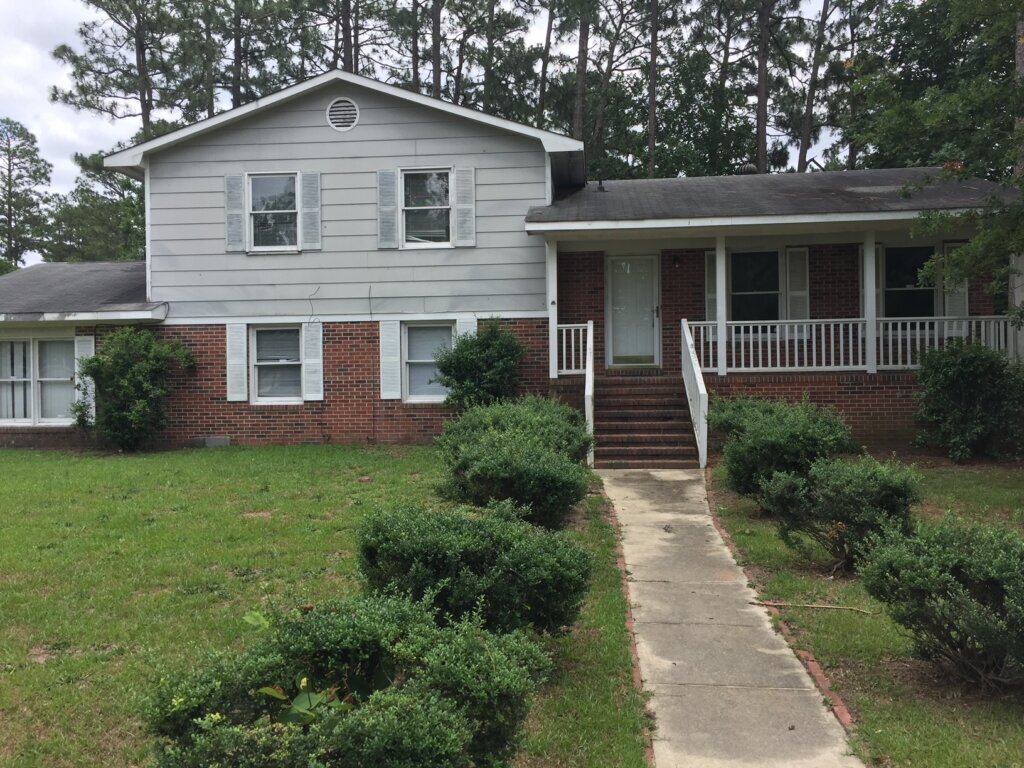
Can you sell a house in foreclosure in North Carolina?
Absolutely! Even when facing the stress and uncertainty of foreclosure, you still have the option to sell your house during the foreclosure process. The key is to act fast, as lenders are eager to recover their losses, making timely action crucial. Selling your house prior to the foreclosure auction can:
- Avoid a foreclosure being on your record
- Allow you to purchase another home much sooner
- Eliminate the risk of deficiency judgments
How to sell a house in foreclosure in North Carolina
Step 1: Find out how much your home is worth
Depending on your real estate knowledge, timeline, and budget, there are several ways to determine your home’s value. You can hire an appraiser, speak with a realtor, or use online resources to help you estimate your property value.
Step 2: Set an asking price and timeline
After assessing the current market value of your home, the next step is to establish an asking price and list the house for sale. It’s best to set a fair asking price rather than overpricing to ensure a timely sale and attract sufficient potential buyers. Aim for a sell price that strikes a balance, enabling you to cover your debts while allow the buyer to be fully invested at or below the appraised value of the house.
Step 3: Inform your mortgage lender
Prior to listing the house, it’s crucial to notify your mortgage lender of your intention to sell the home during pre-foreclosure. This proactive step enables negotiation with the bank to address re-payment of any missed payments and extension the foreclosure timeline.
Step 4: Find a real estate agent or sell it on your own
Once you’ve informed your lender of your intentions to sell, you can seek the assistance of a reputable real estate agent or pursue a buyer independently. Given the urgency of the sale, we suggest engaging an experienced agent or considering a cash home buyer to expedite the process.
Step 5: Receive offer(s) and negotiate
Unfortunately, when your house is in foreclosure, negotiating room is often limited. With a tight timeline to sell and the prospect of an auction where you may not profit from the house, waiting is not advisable. We strongly suggest reaching out to several companies that buy homes to assess pricing and other considerations such as closing timelines, costs, and assistance with moving.
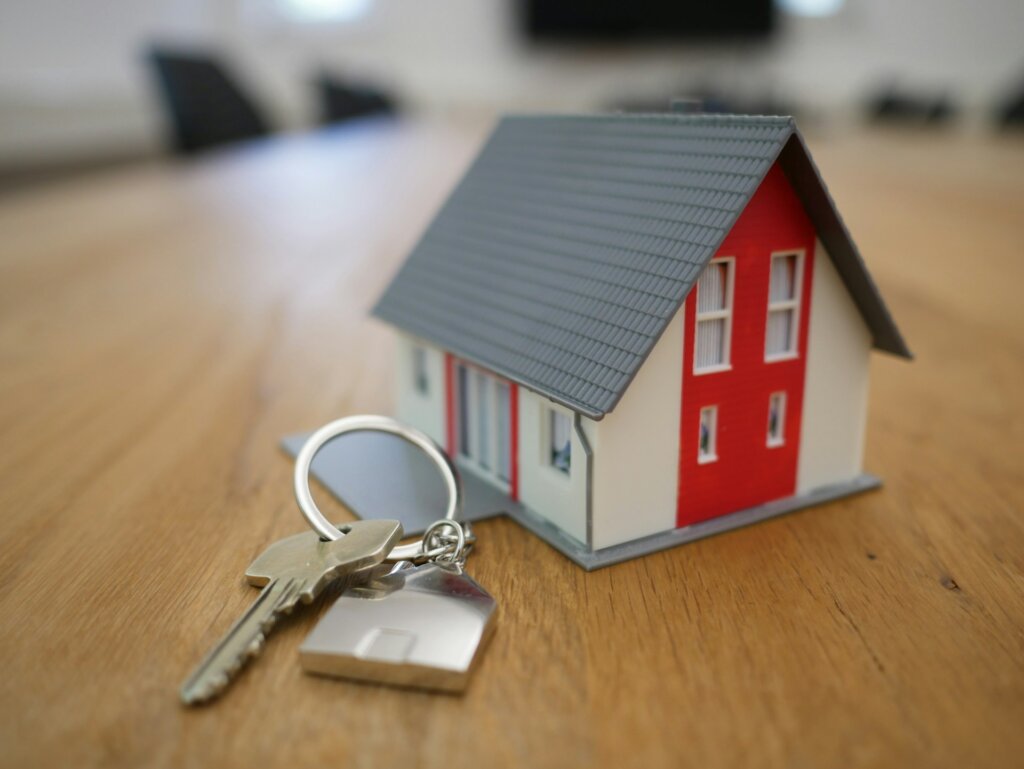
Step 6: Notify lender of buyer
Once contracted with a buyer to sell your house it is important to notify your lender. This can often delay the foreclosure process and allow you to pursue necessary steps to get the transaction to closing.
Step 7: Close
The final step in selling a house in foreclosure in North Carolina is to close on the house and transfer ownership to the buyer.
How long do you have to sell your house before losing your home to foreclosure in North Carolina?
In North Carolina, foreclosure proceedings can progress quickly, underscoring the importance of taking prompt action if you plan to sell. Usually initiated with a notice of default following three months of missed payments, the process can culminate in the property’s auction within six months. It is advisable to promptly explore all available avenues to sell your house and maintain open communication with your lender to prevent the loss of your home to foreclosure.
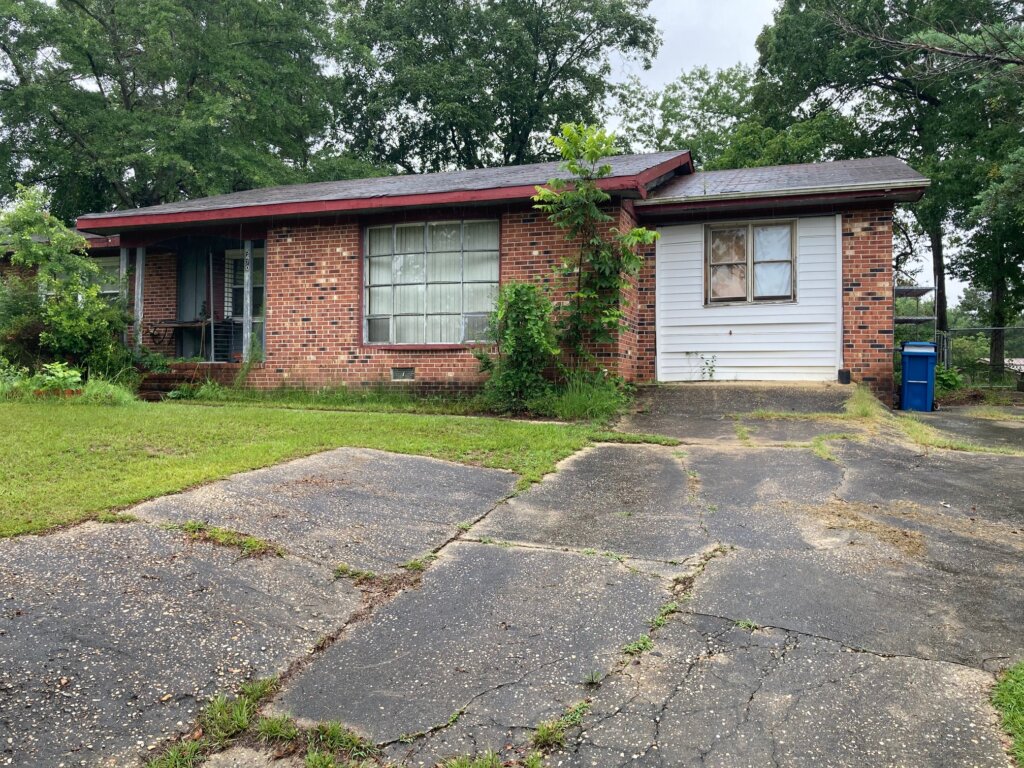
How long does it take to sell a house in foreclosure in North Carolina?
The timeline to sell your house can vary depending on the approach you choose. Opting for traditional methods, like listing your house with a realtor, typically entails longer timelines and the potential risk of a buyer backing out, necessitating a restart after several months under contract. Conversely, selling to a cash home buyer offers the quickest route, with many willing to close within two to four weeks, depending on circumstances.
When is it too late to stop foreclosure in North Carolina?
Although a homeowner technically has the ability to stop foreclosure by submitting an upset bid period during the redemption period after the house is sold at auction – the last chance to stop foreclosure without the interference of auction would be prior to the public auction date. Our company has stopped foreclosures as late as 48 hours prior to the public auction.
Tips for acting quickly when selling a house during foreclosure
- Ensure all owners of the property are in agreement to sell
- Communicate to the bank your intentions to sell and explore all options to prolong the time allowed to pursue a sale (remember, the bank does not want to foreclose)
- Explore all options to sell including non-traditional methods like a cash home buyer or investor. Often times investors are able to close much quicker than traditional buyers
Challenges when selling a home in foreclosure in North Carolina
Selling a house in foreclosure can present many challenges. Many buyers can be skeptical when purchasing a house in foreclosure due to the as-is nature of these sales. It’s important to consider potential hurdles ahead of time to be prepared.

Owner no longer lives in home
If you no longer reside in the home, it’s imperative to notify potential buyers and make arrangements for showings or open houses. Additionally, it’s essential to maintain the property and ensure it’s in good condition to appeal to potential buyers.
Litigation pending
If the property is involved in legal proceedings such as bankruptcy, divorce or some other form of litigation involving liens against the house – this will likely impede the sales process.
Selling it on your own
If time permits, we recommend seeking the assistance of a licensed real estate agent to help you sell your house in foreclosure due to the complexities involved. However, for those seeking a swift sale without the hassle of repairs or concerns about closing costs, collaborating with a real estate investor who specializes in buying houses in foreclosure is encouraged.
What options do you have other than selling your home to stop foreclosure?
Bring your loan current
The simplest way to stop foreclosure is by bringing your loan current. This can be done by ordering a re-instatement fee from your mortgage lender which can include missed payments, interest accrued, late fees, and foreclosure attorney fees.
Loan modification
If financial restraints prevent a lump sum re-instatement of your loan, many borrowers choose to modify their loan. Your lender may be willing to extend the duration of your current loan, adjust the interest rate, defer certain portions of your payments, or provide alternative solutions to assist you in repaying the loan.
Request forbearance
Mortgage forbearance enables borrowers to temporarily halt or reduce their mortgage payments when facing a short-term crisis, such as unemployment, illness, or other financial setbacks. This was a common occurrence during covid-19. Be sure to check with your lender to see if you qualify for mortgage forbearance.
Refinancing before foreclosure
Refinancing is the act of replacing your current loan with a new loan with and can be utilized to prevent foreclosure.
Deed in lieu of foreclosure
This is typically a drastic measure, considered only when the home owner has explored all other avenues, whereby the borrower relinquishes ownership rights and transfers deed back to the lender, losing home ownership along with it.
Short sale
When a homeowner sells their house for an amount less than what is owed on the mortgage, the proceeds from the sale go entirely to the lender of the original mortgage. The lender may either forgive the remaining balance or pursue a deficiency judgment, compelling the original borrower to settle the outstanding debt. Although not as damaging as a foreclosure, The Fair Isaac Corp., which produces the widely used FICO score, says you could lose between 70 and 160 points off your credit score and could take up to 7 years to recover back to your original FICO score.
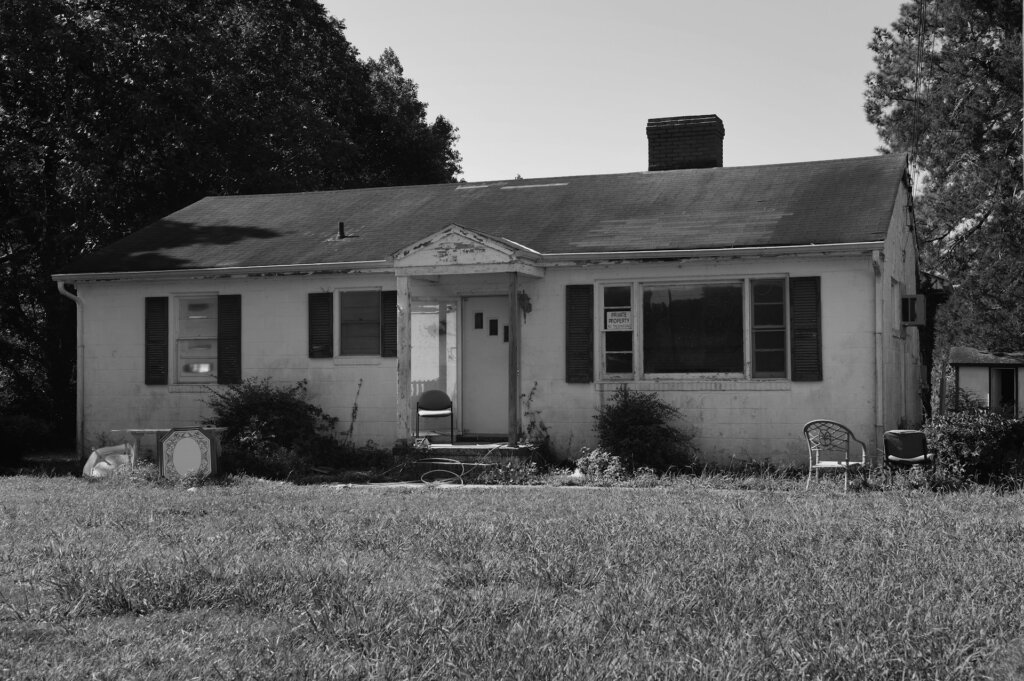
File for bankruptcy
Upon filing for either Chapter 13 or Chapter 7 bankruptcy, the court will issue an Order for Relief that includes an automatic stay provision. This automatic stay effectively halts creditors listed in your bankruptcy petition from pursuing collection actions on the debts owed to them.
Common questions about selling a house in foreclosure in North Carolina

Can I sell my house to avoid foreclosure in North Carolina?
Yes, you can sell your house during pre-foreclosure in North Carolina to avoid full foreclosure. Acting quickly is essential—notify your lender as soon as possible about your plan to sell and any potential buyers. Early communication helps ease time pressures and gives you more opportunity to receive and negotiate offers. Most lenders are willing to cooperate because a successful sale helps them recover their loan without the lengthy foreclosure process.
Will I still owe money when my house is sold at a foreclosure auction?
This depends on the outcome of the foreclosure auction sale and the outstanding mortgage balance. Sometimes, the auction sale fails to cover the entire mortgage debt, leaving you responsible for the shortfall owed to the lender, referred to as a deficiency judgment.
Can I sell my home in foreclosure to a cash home buyer?
Yes! If you’re facing a tight timeline, selling your home to a reputable cash home buyer in North Carolina is one of the fastest and easiest ways to avoid foreclosure. Experienced investors specialize in purchasing homes in foreclosure and can often close the sale in as little as 14 days—helping you quickly stop the foreclosure process and move forward with your life.
Conclusion: Can you sell a house in foreclosure in North Carolina?
Selling a house in foreclosure in North Carolina can be stressful, but if action is taken early it can be a smooth process. Mortgage lenders have many options for borrowers who are in default and will try to provide assistance to avoid foreclosure. It is encouraged to seek professional guidance from an experienced real estate agent that understands the value of your house if you choose to sell on the open market.
These findings apply to all cities and towns in North Carolina, including Raleigh, Durham, Fayetteville, Johnston County, Sanford, Burlington, and surrounding areas.
Related Articles
Can you sell a house in foreclosure in North Carolina?
How to sell rental property in North Carolina (and avoid paying taxes)?
Selling a house as-is in North Carolina (How to sell a house that needs repairs)
How much are seller closing costs in North Carolina?
Can a house be sold with a lien on it in North Carolina?
A guide to selling a house with tenants in North Carolina
A guide to selling inherited property in North Carolina
Selling a house during divorce in North Carolina
Selling house for job relocation North Carolina
Selling a fire damaged house North Carolina
Selling a house with code violations North Carolina
If you don’t have the luxury of time and need to sell your house in a hurry to stop foreclosure, you can reach out to us here at Freedom Choice Investments. We have helped many homeowners avoid foreclosure even as late as the week of the auction by offering cash for their house.
Fill out the form below for a no obligation cash offer or call us at (919) 285-1284 for more information.
Sell My House Fast For Cash Today!
Get started now. Fill out the form to receive your cash offer in minutes. There’s no obligation. We buy houses in any condition and always close on YOUR timeline.

Author: Jason Hill
I am a seasoned real estate agent and investor with years of experience helping my clients navigate the pre-foreclosure process in North Carolina in order to stop foreclosure. As the founder of Freedom Choice Investments my mission is to deliver simple and hassle free selling solutions to North Carolina homeowners. With the ability to either list your house or buy it as-is we have a unique offering that caters to those looking for ways to prevent foreclosure.

